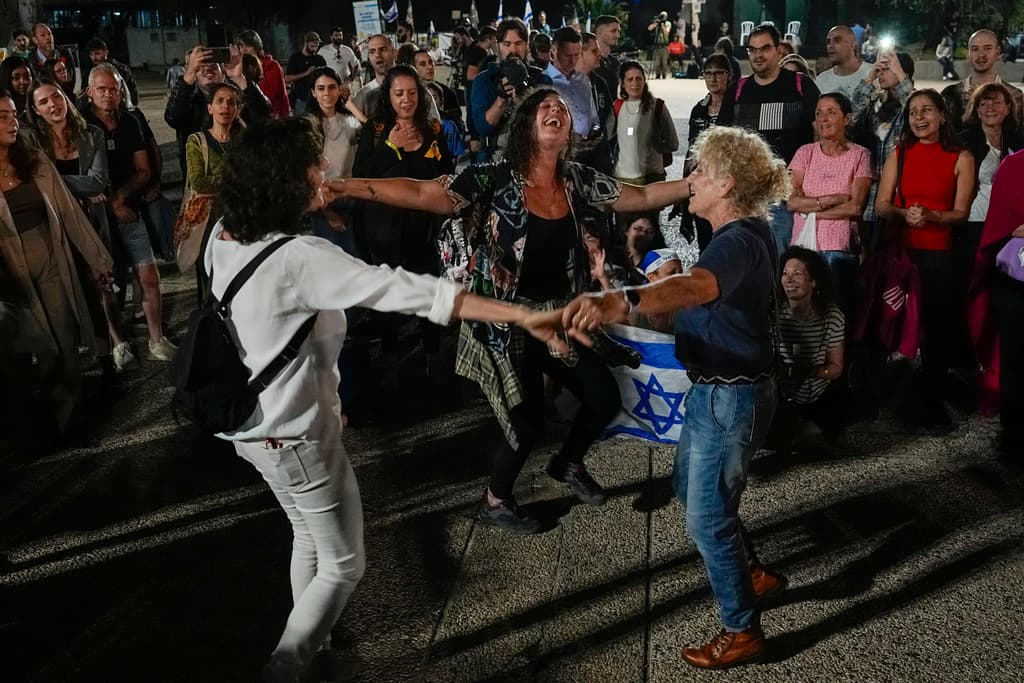Netanyahu, in Meeting With Hostage Families, Reportedly Floats Option of Exile for Hamas Leaders in Exchange for All Hostages
‘We haven’t given up on anyone,’ the prime minister is reported to have assured family members.

Prime Minister Netanyahu, in a meeting Tuesday with the families of kidnapped Israelis, is reported to have discussed options for a negotiated return of hostages still held by Hamas — including, according to one participant, an option of enabling senior leaders of Hamas to leave Gaza in return for the liberation of all remaining hostages.
“We haven’t given up on anyone,” Mr. Netanyahu is reported in the Israeli press to have assured family members. “We remain dedicated to returning everyone alive from the clutches of our monstrous enemy.”
At the same time, in mooting the idea of letting senior Hamas aides leave Gaza in a deal for the remaining hostages, Mr. Netanyahu also stressed that continued offensive military action by the IDF was the key to any hostage deal.
Even were an exile-for-hostages agreement negotiated, it’s questionable whether those banished Hamas leaders would ever enjoy immunity from the long arm of Israeli retribution. Case in point yesterday’s assassination-by-drone of Salah al-Arouri and five other Hamas commanders during a strategy meeting in downtown Beirut.
Al-Arouri was deputy chairman of the Hamas politburo and founding member of the Izz-ad-Din al-Qassem Brigades, the movement’s military wing. He played an instrumental role in negotiating the 2011 release of kidnapped Israeli soldier Gil’ad Shalit and reputedly was responsible for standing up Hamas networks throughout Judea-Samaria, aka the West Bank.
Al-Aruri’s death was the latest installment on Mr Netanyahu’s vow to hunt down the entire Hamas command structure, both inside Gaza and abroad. And, while the total destruction of Hamas is certainly an Israel military imperative, this policy can’t be divorced from its domestic political implications as well.
Mr. Netanyahu’s right wing coalition partners, Finance Minister Betzalel Smotrich and National Security Minister Itamar Ben Gvir, would certainly rebel at such an exile-for-hostages agreement, even if it yielded the benefit of freedom for Israel’s remaining hostages. Neither Messrs. Smotrich nor Ben Gvir are likely to be placated by promises to settle the score with Hamas leaders at some indeterminate future date.
As a result, Mr. Netanyahu finds himself in the throes of a dilemma, pulled one way by the grief of hostage families, while simultaneously being yanked in the opposite direction by the Israeli public’s yearning for total victory against Hamas.

